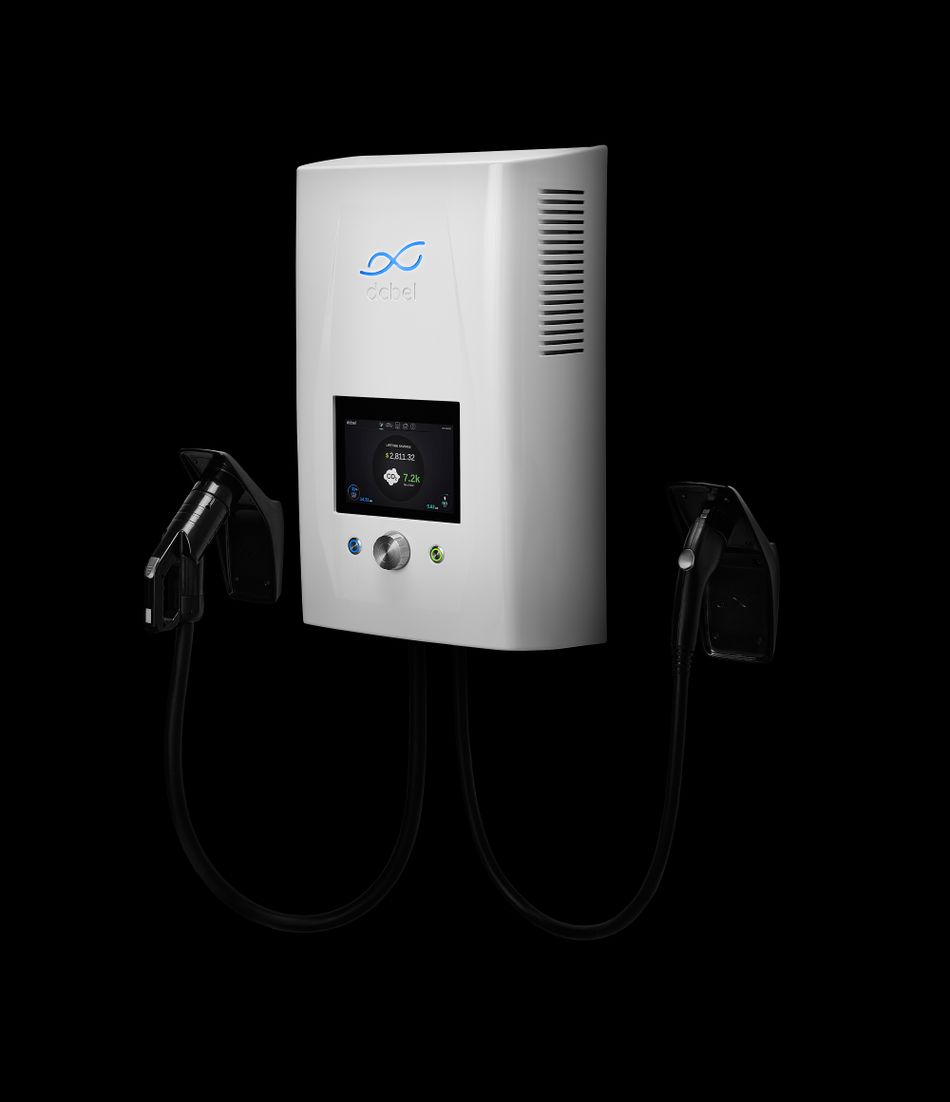You could go the Tesla route to build out a complete energy system with an electric car, Powerwall battery for energy storage, and solar tiles to gather power from the sun. You can then charge your Tesla EV with the stored energy from the roof or feed that battery energy back to the house (although you still can’t use a Tesla to directly power your home’s electricity).
Total cost: About $6,000 plus installation for the Powerwall; some $44,000 for a full solar roof; and a Tesla Model 3 at around $38,000 for the cheapest model.
But Tesla isn’t the only option. More “smart home” energy systems are popping up. On Wednesday, Montreal-based Dcbel announced it’s launching the r16, an all-in-one energy management unit. It uses solar energy for EV charging, but also works as a home back-up power source.
The unit can charge up to two EVs at the same time, and offers fast charging (known as Level 3 or DC Fast Charging) giving you 60 miles of battery range in an hour. CEO Marc-Andre Forget described it as a “small Tesla Supercharger inside your home.”
Total cost: $4,999, plus installation and an EV (a new Nissan Leaf starts at around $31,000).
Dcbel’s unit comes with an accompanying app to monitor energy usage in your EV and home. It will be available first in California later this summer, where CEO Marc-Andre Forget saw a need for better energy solutions (and because the state has high EV ownership). After the Texas climate crisis earlier this year, the company is eyeing a launch there too.
The Dcbel can charge any EV, but to use your electric vehicle as a power source the car has to have bi-directional charging. That’s only compatible with the Nissan Leaf and Mitsubishi Outlander plug-in hybrid vehicles for now. More automakers are adding direct vehicle-to-grid capabilities, like the upcoming Kia EV6 and all future Volkswagen EVs.

More than an EV charger.
Image: Dcbel
Forget said the Dcbel leverages EV purchases to “make them more convenient,” especially since cars sit parked with a charged battery most of the time.
The Dcbel can supplement your home’s everyday power use with stored energy from an EV, or it can kick into action during a power outage. Forget said the average power outage is about four hours long, and the Dcbel will automatically turn on power from the car when a blackout happens. The car battery can power the average American home for up to 12 hours, depending on how much energy you use to run the fridge, microwave, oven, air conditioning, and TV.
Forget expects people to buy the energy manager when buying an EV or when purchasing a home, since it’s a big investment in that energy-efficient lifestyle. No Tesla required.
